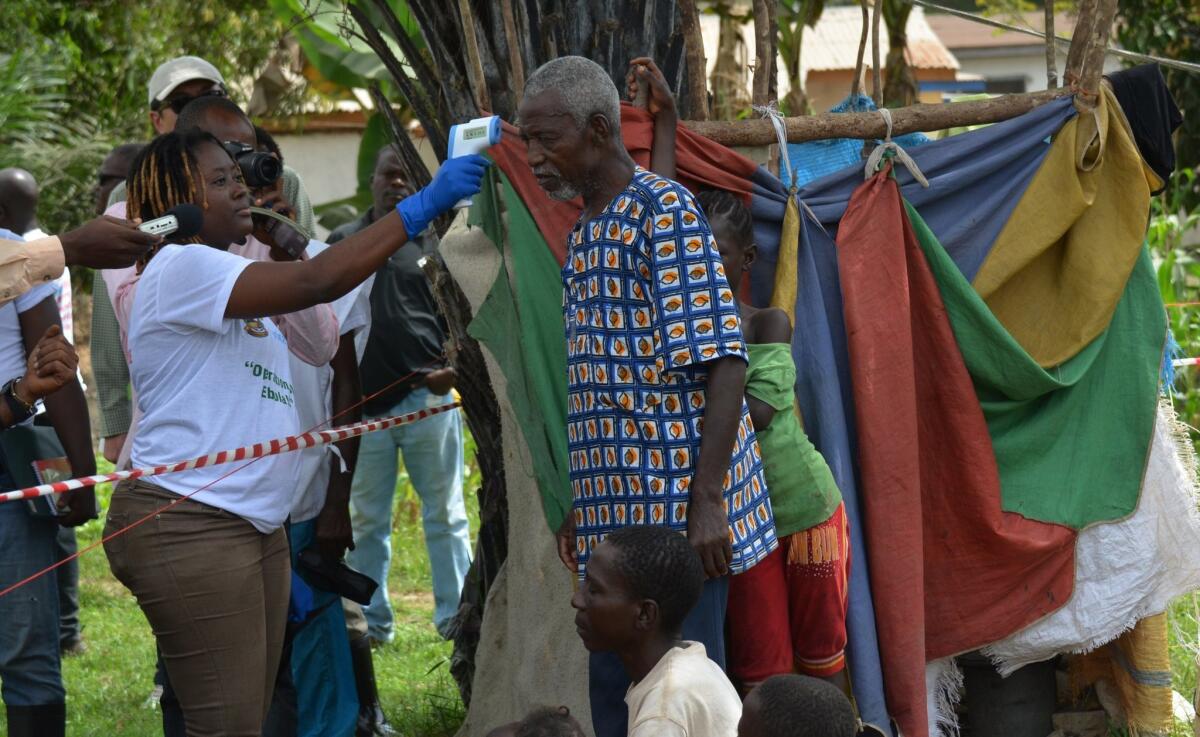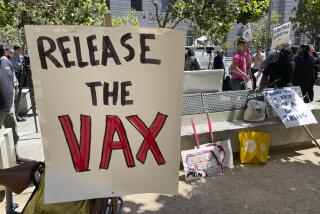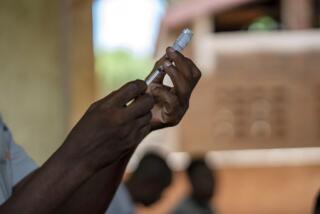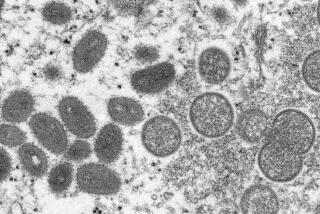Ebola vaccine heads to Liberia for tests even as crisis eases

The first 300 doses of an experimental Ebola vaccine were headed for Liberia on Friday, but health authorities say the West African nation may already have turned the corner on slowing the outbreak of the deadly disease.
Although the vaccine was developed to the testing stage at record speed by British pharmaceutical company GlaxoSmithKline, it probably comes too late to have a significant effect on turning around the outbreak of Ebola: The turning point may have already come.
New infections in the three worst-hit countries are already declining sharply, according to statistics from the World Health Organization, and testing of the new vaccine in West Africa is still several weeks away. The downturn is attributed to the isolation of new cases and steps taken to ensure that burials are carried out safely.
It raises questions about whether there will be enough patients left in Liberia in several weeks to prove the efficacy of the vaccine.
The rate of new infections in the country is dropping by half every two weeks; the number of confirmed new infections fell to just nine in the eight days ended Tuesday. When Ebola peaked in Liberia in August and September, there were several hundred new infections a week.
The worst-hit country, Sierra Leone, accounting for almost half of all infections, had 117 new confirmed cases last week, according to the WHO, compared with 248 new cases two weeks before that and more than 500 a week last month.
The first people to receive the experimental vaccine in Liberia will be healthcare workers. Initial testing indicated the vaccine had an acceptable safety profile, GlaxoSmithKline said Friday. The next phase of the trial will assess whether the immune response produced by the drug translates into meaningful protection against the disease, the company said.
“If the candidate vaccine is able to protect these people, as we hope it will, it could significantly contribute to efforts to bring this epidemic under control and prevent future outbreaks,” said Dr. Moncef Slaoui, chairman of global vaccines at the company. He said trials with 200 volunteers in the United States, Britain, Switzerland and Mali were “encouraging.”
The vaccine’s future would depend on whether the WHO and regulators were satisfied that the drug would protect people from being infected without dangerous side effects, he said.
The Liberian trials will involve 30,000 people, a third of whom will be given the drug. There are plans to eventually expand the trial to Sierra Leone and Guinea, the third country hit hard by the outbreak. The company also plans to test the drug in other African countries not affected by the disease.
The vaccine uses a chimpanzee cold virus to deliver benign genetic material from the strain of Ebola that has raged across the three West African countries, according to the company.
In September and October, Ebola cases increased exponentially and treatment facilities in Monrovia, the Liberian capital, filled to overflowing the moment they opened their doors. Many people died in desperate circumstances waiting outside the gates of treatment units.
Although the WHO cautions against complacency on the deadly virus, the dramatic decline in new infections in the three countries seems to be the first real sign that the virus is being brought under control after more than a year. Ebola is believed to have infected at least 21,797 people and killed at least 8,675, says the latest WHO report, released Friday.
The WHO said this week that Ebola remains a global health emergency.
Dr. Bruce Aylward, the WHO’s assistant director general in charge of the Ebola response, told journalists in Geneva on Friday that the situation remained precarious and that the approaching rainy season could complicate efforts to control the outbreak.
Calling for donors to continue to step up, he said that “if you go into a real wet season with this disease, you’re looking at another hard year of work or plus.” The WHO needs a total of $250 million to fight the disease in the next six months.
“There is no such thing as Ebola control, it has got to drive to zero,” he said. “It’s still an incredibly dangerous situation.”
Sierra Leone President Ernest Bai Koroma on Friday lifted travel restrictions designed to prevent the spread of the virus from one region to another. About half the country had been banned from traveling, choking the economy.
Although Liberia had fewer cases than did Sierra Leone, it suffered the highest death toll among the infected countries, with 3,636.
Humanitarian agencies such as Doctors Without Borders began to see an improvement in Liberia about October, when there was a rapid increase in the number of treatment beds and progress in stopping burials conducted without proper hygiene. But the crisis worsened in Sierra Leone toward the end of the year before new cases finally began to decline.
The virus devastated the economies of West Africa; more than 40 countries placed quarantines or travel bans on people coming from Sierra Leone, Liberia and Guinea. The WHO opposes such measures because they discourage international health workers from traveling to West Africa to respond to the disease and stigmatize people from the worst affected countries.
Follow @robyndixon_LAT on Twitter for news out of Africa
More to Read
Start your day right
Sign up for Essential California for news, features and recommendations from the L.A. Times and beyond in your inbox six days a week.
You may occasionally receive promotional content from the Los Angeles Times.






